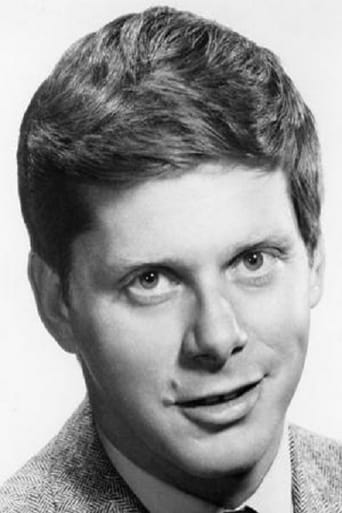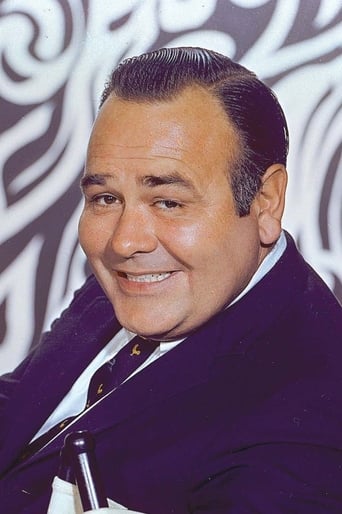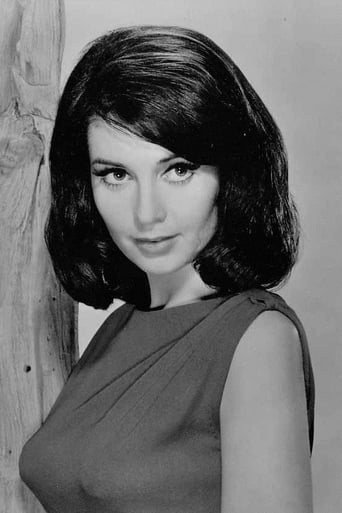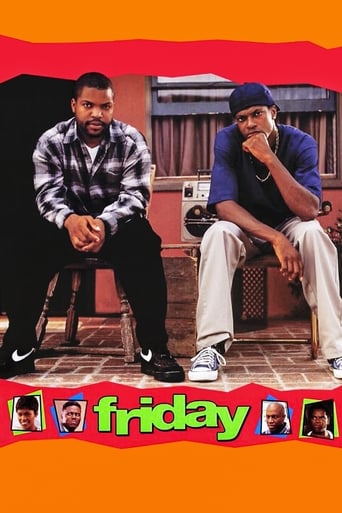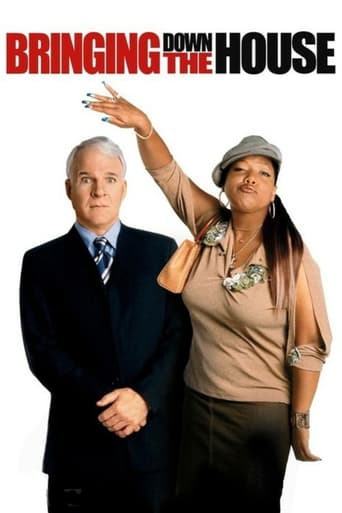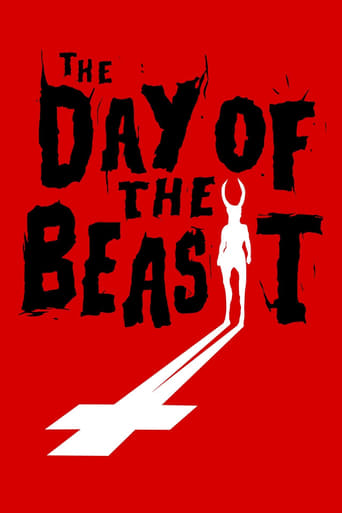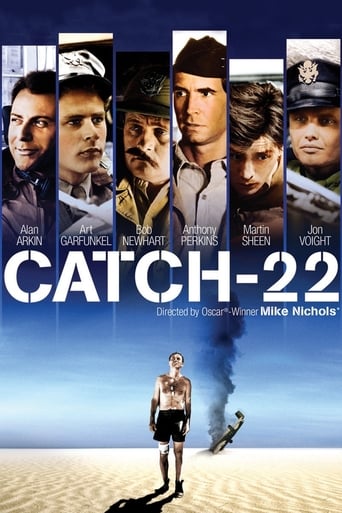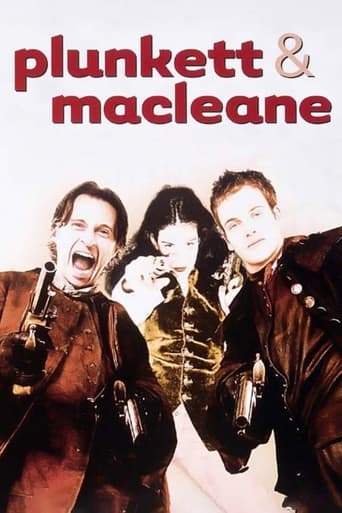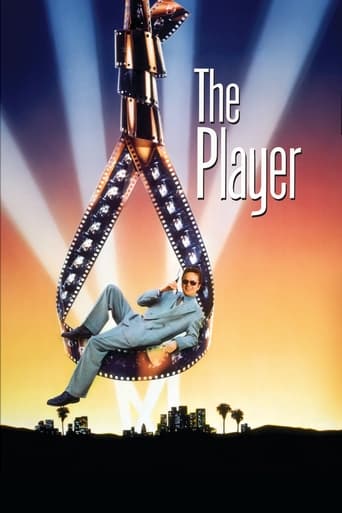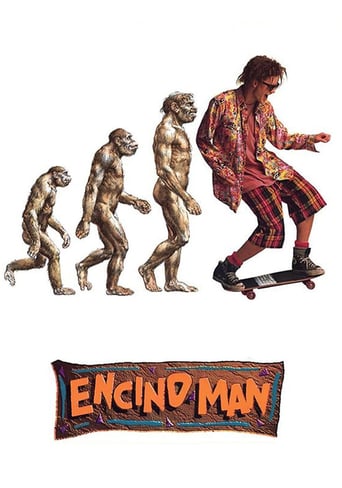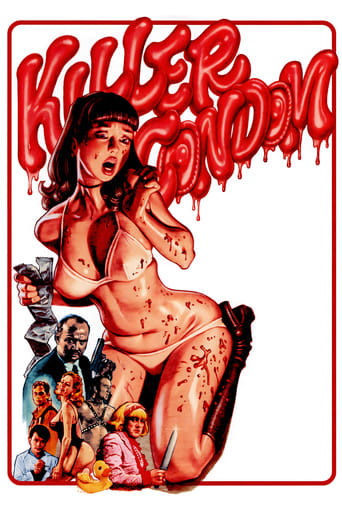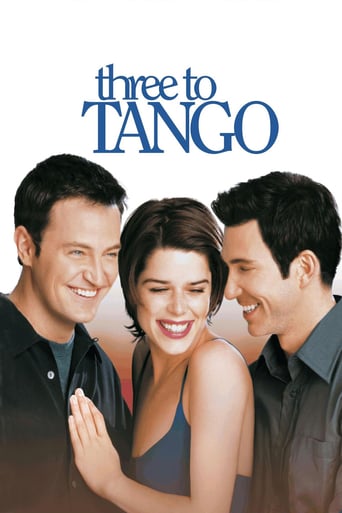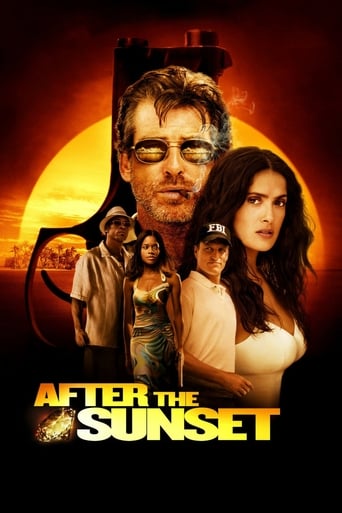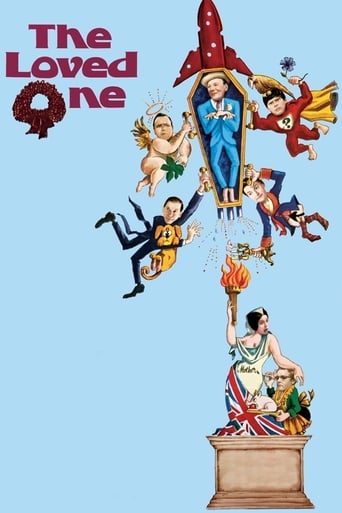
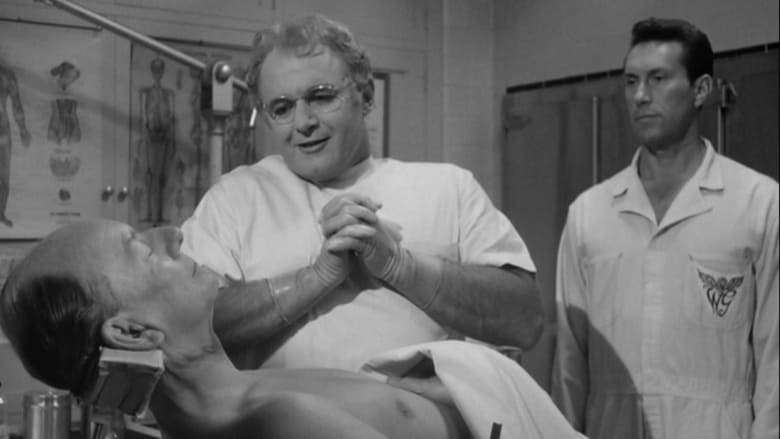
The Loved One (1965)
Newly arrived in Hollywood from England, Dennis Barlow finds he has to arrange his uncle's interment at the highly-organised and very profitable Whispering Glades funeral parlour. His fancy is caught by one of their cosmeticians, Aimee Thanatogenos. But he has three problems - the strict rules of owner Blessed Reverand Glenworthy, the rivalry of embalmer Mr Joyboy, and the shame of now working himself at The Happy Hunting Ground pets' memorial home.
Watch Trailer
Cast


Similar titles
Reviews
Director Tony Richardson takes no prisoners as he lambastes the funeral business, the government, religion, ideology, and anything else held sacred by many. Richardson does this in the most comically satiric manner with subtlety, restraint at times, over-indulgence at other moments, and a unique blend of English reservedness and wit mixed with American vulgarity and frankness. I loved this film and was laughing throughout. The story starts off with a young Englishman(Robert Morse) arriving in LA with no job or prospects other than visiting his famous uncle John Gielgud - who is in the movie business. Gielgud invites the young man to stay, introduces him to the strong acting British community, and provides him with living essentials as the young man decides what to do with his life(apparently after a romantic break). We see Gielgud at work and Richardson has no problems making fun of the movie industry at all as Gielgud, a veteran of 31 years, has been reduced to helping an American hick become an Englishman - not even remotely possible. He fails, is let go, and hangs himself. At this point we have a wonderful satire about the film industry, but what follows balloons into something even more grandiose. Character actor Robert Morley insists that this man be buried at the best place possible - Whispering Glades. We then watch Morse go there and see the hyperbolic excesses of the funereal business for those who least need their services - the dead. Morse meets beautiful Anjanette Comer, a make-up artist for the dead, as well as a series of people to help bring his uncle to "peace." Richardson, taking Waugh's novel, really has a knack at steamrolling his satire here with decadent grounds, huge rooms for repose, a bureaucratic network designed only for the wealthy, white, and people of "merit." Liberace, giving a great performance, plays a man who helps Morse decide on what casket, suit, and even shoes his dead uncle will have. The film then turns into a myriad of directions from a rich reverend who has a godlike complex but only a desire to make money, the help of the government to foster this big business, and a romantic triangle like no other with Morse, Comer, and Rod Steiger as Mr. Joyboy - the chief embalmer. While the end of The Loved One does not carry the impact now that it did in 1965, the film as a whole is a witty, incredibly black comedy de farce in many ways. Richardson made a film his way with his ideals firmly planted. Yes, this film will and I am sure did offend many. It also opens one's eyes to a number of things. The acting is great with Morse doing very solid work. Comer, as I said before, is lovely. Steiger - Steiger is great! His Mr. Joyboy with effeminacy reeking, long white curls, and fastidious outfits matched with his outlandish hand gestures steals every scene he is in...EXCEPT the ones with his mother(more on that shortly). His accented dialog was a real treat to hear. "I am saving for Momma's big tub!" His mother, "every inch a queen," is in one of the most bizarre film scenes I have ever seen in any "mainstream" picture. Words fail me. See it. I shall never look at a roast pig again - or a turkey - in the same way. I could go on, but I think you get my favorable stance toward this film which is most definitely under-viewed. Jonathan Winters is superb as well in two roles. Catch Paul Williams in his first film role. Watch Milton Berele give a great cameo as a husband fighting with his wife over a bereaved loved one. What a funny scene that was too!
I had heard about "The Loved One" while I was in high school but never got a chance to see it during the limited run it had in my area of NYS. Years went by and I kept seeing it pop up on favorite "cult film" lists. Finally, about two years ago I finally got a chance to watch it and loved it. I'm amazed at how irreverent, cynical, and, yes, offensive it is - and just how funny it is, too. The ads for it noted that there was something to offend everyone. After finally seeing it I can definitely agree with the ad campaign. The cast is excellent. Robert Morse's transition from "wide-eyed innocent" to one of the most cynical and opportunistic characters is terrific. I was always a huge Jonathan Winters fan, and always felt that his acting was underrated. (Check him out in "The Twilight Zone" episode about a famous pool player.) The entire British ex-pat group is wonderful. Rod Stieger's turn is phenomenal, particularly when you stop to think that he appeared in "The Pawnbroker" within months of this film. Talk about two widely different roles. Finally, Annjanette Comer's change through the film is great. (By the way, look up the meaning of her character's name sometime. It's a very subtle play on the entire theme of the movie.) This film's greatest problem was that it was released at the wrong time in history. It definitely paved the way for a number of dark, very off-beat comedies that followed, like "Brewster McCloud." I can honestly say that all of those "cult film" lists that had "The Loved One" included were on the mark. You should see this long-overlooked film.
I must admit that for a while during this film, I wasn't very impressed. However, the longer it went, the weirder and more offensive it became---and I really liked that! Back in 1965, it was seen as very sick and offensive. However, given societal changes, it's only a bit sick and offensive today...and well worth your time.The film begins with Dennis (Robert Morse) moving from England to Los Angeles. He moves in with his uncle (John Gieldgud) and this part of the film and its look into Hollywood didn't particularly interest me--especially since I had heard about how wacky the film was. But, when the uncle kills himself, Morse is taken into the world of the funeral industry....and then it gets mega-strange. You are taken into the bizarre world of some ultra-fancy cemetery run by a very odd reverend (Jonathan Winters). Then, Morse gets a job at a pet cemetery--and it gets stranger. I could tell you a lot more about all this, but think you just need to see it for yourself. Be sure to look for some very odd and funny cameos--particularly Liberace as a coffin salesman and a great bit with Milton Berle. I also loved the lady with the suckling pig--again, you need to see it for yourself.The film works because it is very outrageous and silly. It also works because so much of the humor is very dry and underplayed--with folks reacting pretty normally when insane things happen all around them. I think the best thing to say about the film was said by my youngest daughter when she said "This is really funny for an old movie"! Clever and sick...and a lot of fun.
Evelyn Waugh wrote "The Loved One" in 1947 as a satire on what Jessica Mitford was later to call "the American way of death". Waugh's target was the American funeral industry, with its sentimental "memorial parks" and hugely expensive coffins and caskets, which he saw as exploiting the grief of bereaved relatives for lucrative business purposes.Waugh was well-known for his political conservatism, so it must have come as something of a surprise to him when, in the final year of his life, his novel was adapted for the screen by counter-culture satirist Terry Southern and that old thirties leftie Christopher Isherwood, and then directed by Tony Richardson, one of the Angry Young Men of British cinema. As might be expected, Southern, Isherwood and Richardson make some changes to Waugh's original novel. The story is updated from the late forties to the mid sixties, and there are references to phenomena such as astronauts and Beatles haircuts which were quite unknown in 1947.The central character is Dennis Barlow, a young Englishman who travels to Los Angeles to stay with his uncle Sir Francis Hinsley, a once-famous artist now employed by a Hollywood studio. Sir Francis hangs himself after losing his job, and Dennis is given the task of organising his funeral at the Whispering Glades memorial park. There he meets Aimee Thanatogenos, who is employed by the park as a cosmetician, charged with the task of improving the appearance of the dead "loved ones" prior to burial. Dennis falls in lust with the attractive young Aimee (love being an emotion quite foreign to his nature), but he has a rival for her affections in the shape of her boss, the embalmer Mr Joyboy.Given that Dennis is an Englishman, and that differences between English and American customs are one of the themes of both the film and Waugh's novel, it is surprising that the part went to an American actor, especially as Robert Morse, better known for his stage and television work, was not a major film star. Apparently Morse's difficulties with a British accent meant that his dialogue had to be dubbed over, so it is not surprising that he never sounds convincing. Anjanette Comer's performance as Aimee is rather one-dimensional; her irritatingly high-pitched voice was presumably adopted to try and convey Aimee's naïve idealism. There are, however, some good performances in supporting roles, from John Gielgud as Sir Francis, the aristocrat fallen on hard times, Robert Morley as a pompous British actor, Rod Steiger as the oleaginous Joyboy (who has a most peculiar relationship with his massively overweight mother), and the pianist Liberace, not normally though of as an actor, as one of the memorial park's salesmen. A feature of the film is that a number of well-known stars (James Coburn, Dana Andrews, Tab Hunter) appear in minor roles.Waugh's satire is broadened to include more aspects of American life; the film opens (and closes) with a stirring rendition of "America the Beautiful", the use of which in this context is deliberately ironic. The film's targets include not only the funeral industry but also big business, Hollywood, obesity, motherhood, the military, the American space programme and religion. (Waugh, a devout Catholic, might not have approved of that last one). The owner of "Whispering Glades", for example, poses as an idealistic clergyman, but in reality he is a hard-nosed businessman who simply sees the park as a money-making opportunity. Concerned that the park is running out of space for burials, he approaches the US Air Force with a bizarre proposal for funerals in space.Any comedy set against a background of funerals and death is likely to be dark in character, and this one is particularly black. (There are, for example, two suicides). Black comedy can be a difficult subject to get right. The main rule is that it is not enough to be black; one must be comic as well. Done well, it can be tasteless but hilarious; done badly, it is merely tasteless. "The Loved One" is not the greatest example of the genre (that is perhaps Kubrick's "Dr Strangelove" made two years earlier) but it hits enough of its targets to fall within the tasteless but hilarious category. It is hardly surprising that it was billed as a film with something to offend everyone. 7/10


